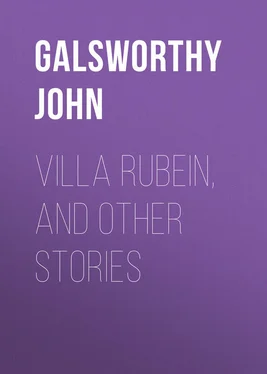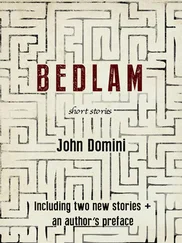John Galsworthy - Villa Rubein, and Other Stories
Здесь есть возможность читать онлайн «John Galsworthy - Villa Rubein, and Other Stories» — ознакомительный отрывок электронной книги совершенно бесплатно, а после прочтения отрывка купить полную версию. В некоторых случаях можно слушать аудио, скачать через торрент в формате fb2 и присутствует краткое содержание. Жанр: foreign_antique, foreign_prose, на английском языке. Описание произведения, (предисловие) а так же отзывы посетителей доступны на портале библиотеки ЛибКат.
- Название:Villa Rubein, and Other Stories
- Автор:
- Жанр:
- Год:неизвестен
- ISBN:нет данных
- Рейтинг книги:3 / 5. Голосов: 1
-
Избранное:Добавить в избранное
- Отзывы:
-
Ваша оценка:
- 60
- 1
- 2
- 3
- 4
- 5
Villa Rubein, and Other Stories: краткое содержание, описание и аннотация
Предлагаем к чтению аннотацию, описание, краткое содержание или предисловие (зависит от того, что написал сам автор книги «Villa Rubein, and Other Stories»). Если вы не нашли необходимую информацию о книге — напишите в комментариях, мы постараемся отыскать её.
Villa Rubein, and Other Stories — читать онлайн ознакомительный отрывок
Ниже представлен текст книги, разбитый по страницам. Система сохранения места последней прочитанной страницы, позволяет с удобством читать онлайн бесплатно книгу «Villa Rubein, and Other Stories», без необходимости каждый раз заново искать на чём Вы остановились. Поставьте закладку, и сможете в любой момент перейти на страницу, на которой закончили чтение.
Интервал:
Закладка:
An author must ever wish to discover a hapless member of the Public who, never yet having read a word of his writing, would submit to the ordeal of reading him right through from beginning to end. Probably the effect could only be judged through an autopsy, but in the remote case of survival, it would interest one so profoundly to see the differences, if any, produced in that reader’s character or outlook over life. This, however, is a consummation which will remain devoutly to be wished, for there is a limit to human complaisance. One will never know the exact measure of one’s infecting power; or whether, indeed, one is not just a long soporific.
A writer they say, should not favouritize among his creations; but then a writer should not do so many things that he does. This writer, certainly, confesses to having favourites, and of his novels so far be likes best: The Forsyte Series; “The Country House”; “Fraternity”; “The Dark Flower”; and “Five Tales”; believing these to be the works which most fully achieve fusion of seer with thing seen, most subtly disclose the individuality of their author, and best reveal such of truth as has been vouchsafed to him. JOHN GALSWORTHY.
VILLA RUBEIN
I
Walking along the river wall at Botzen, Edmund Dawney said to Alois Harz: “Would you care to know the family at that pink house, Villa Rubein?”
Harz answered with a smile:
“Perhaps.”
“Come with me then this afternoon.”
They had stopped before an old house with a blind, deserted look, that stood by itself on the wall; Harz pushed the door open.
“Come in, you don’t want breakfast yet. I’m going to paint the river to-day.”
He ran up the bare broad stairs, and Dawney followed leisurely, his thumbs hooked in the armholes of his waistcoat, and his head thrown back.
In the attic which filled the whole top story, Harz had pulled a canvas to the window. He was a young man of middle height, square shouldered, active, with an angular face, high cheek-bones, and a strong, sharp chin. His eyes were piercing and steel-blue, his eyebrows very flexible, nose long and thin with a high bridge; and his dark, unparted hair fitted him like a cap. His clothes looked as if he never gave them a second thought.
This room, which served for studio, bedroom, and sitting-room, was bare and dusty. Below the window the river in spring flood rushed down the valley, a stream, of molten bronze. Harz dodged before the canvas like a fencer finding his distance; Dawney took his seat on a packingcase.
“The snows have gone with a rush this year,” he drawled. “The Talfer comes down brown, the Eisack comes down blue; they flow into the Etsch and make it green; a parable of the Spring for you, my painter.”
Harz mixed his colours.
“I’ve no time for parables,” he said, “no time for anything. If I could be guaranteed to live to ninety-nine, like Titian – he had a chance. Look at that poor fellow who was killed the other day! All that struggle, and then – just at the turn!”
He spoke English with a foreign accent; his voice was rather harsh, but his smile very kindly.
Dawney lit a cigarette.
“You painters,” he said, “are better off than most of us. You can strike out your own line. Now if I choose to treat a case out of the ordinary way and the patient dies, I’m ruined.”
“My dear Doctor – if I don’t paint what the public likes, I starve; all the same I’m going to paint in my own way; in the end I shall come out on top.”
“It pays to work in the groove, my friend, until you’ve made your name; after that – do what you like, they’ll lick your boots all the same.”
“Ah, you don’t love your work.”
Dawney answered slowly: “Never so happy as when my hands are full. But I want to make money, to get known, to have a good time, good cigars, good wine. I hate discomfort. No, my boy, I must work it on the usual lines; I don’t like it, but I must lump it. One starts in life with some notion of the ideal – it’s gone by the board with me. I’ve got to shove along until I’ve made my name, and then, my little man – then – ”
“Then you’ll be soft!”
“You pay dearly for that first period!”
“Take my chance of that; there’s no other way.”
“Make one!”
“Humph!”
Harz poised his brush, as though it were a spear:
“A man must do the best in him. If he has to suffer – let him!”
Dawney stretched his large soft body; a calculating look had come into his eyes.
“You’re a tough little man!” he said.
“I’ve had to be tough.”
Dawney rose; tobacco smoke was wreathed round his unruffled hair.
“Touching Villa Rubein,” he said, “shall I call for you? It’s a mixed household, English mostly – very decent people.”
“No, thank you. I shall be painting all day. Haven’t time to know the sort of people who expect one to change one’s clothes.”
“As you like; ta-to!” And, puffing out his chest, Dawney vanished through a blanket looped across the doorway.
Harz set a pot of coffee on a spirit-lamp, and cut himself some bread. Through the window the freshness of the morning came; the scent of sap and blossom and young leaves; the scent of earth, and the mountains freed from winter; the new flights and songs of birds; all the odorous, enchanted, restless Spring.
There suddenly appeared through the doorway a white rough-haired terrier dog, black-marked about the face, with shaggy tan eyebrows. He sniffed at Harz, showed the whites round his eyes, and uttered a sharp bark. A young voice called:
“Scruff! Thou naughty dog!” Light footsteps were heard on the stairs; from the distance a thin, high voice called:
“Greta! You mustn’t go up there!”
A little girl of twelve, with long fair hair under a wide-brimmed hat, slipped in.
Her blue eyes opened wide, her face flushed up. That face was not regular; its cheek-bones were rather prominent, the nose was flattish; there was about it an air, innocent, reflecting, quizzical, shy.
“Oh!” she said.
Harz smiled: “Good-morning! This your dog?”
She did not answer, but looked at him with soft bewilderment; then running to the dog seized him by the collar.
“Scr-ruff! Thou naughty dog – the baddest dog!” The ends of her hair fell about him; she looked up at Harz, who said:
“Not at all! Let me give him some bread.”
“Oh no! You must not – I will beat him – and tell him he is bad; then he shall not do such things again. Now he is sulky; he looks so always when he is sulky. Is this your home?”
“For the present; I am a visitor.”
“But I think you are of this country, because you speak like it.”
“Certainly, I am a Tyroler.”
“I have to talk English this morning, but I do not like it very much – because, also I am half Austrian, and I like it best; but my sister, Christian, is all English. Here is Miss Naylor; she shall be very angry with me.”
And pointing to the entrance with a rosy-tipped forefinger, she again looked ruefully at Harz.
There came into the room with a walk like the hopping of a bird an elderly, small lady, in a grey serge dress, with narrow bands of claret-coloured velveteen; a large gold cross dangled from a steel chain on her chest; she nervously twisted her hands, clad in black kid gloves, rather white about the seams.
Her hair was prematurely grey; her quick eyes brown; her mouth twisted at one corner; she held her face, kind-looking, but long and narrow, rather to one side, and wore on it a look of apology. Her quick sentences sounded as if she kept them on strings, and wanted to draw them back as soon as she had let them forth.
Читать дальшеИнтервал:
Закладка:
Похожие книги на «Villa Rubein, and Other Stories»
Представляем Вашему вниманию похожие книги на «Villa Rubein, and Other Stories» списком для выбора. Мы отобрали схожую по названию и смыслу литературу в надежде предоставить читателям больше вариантов отыскать новые, интересные, ещё непрочитанные произведения.
Обсуждение, отзывы о книге «Villa Rubein, and Other Stories» и просто собственные мнения читателей. Оставьте ваши комментарии, напишите, что Вы думаете о произведении, его смысле или главных героях. Укажите что конкретно понравилось, а что нет, и почему Вы так считаете.












